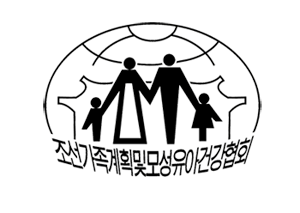

| 31 March 2016
Korean Family Planning & Maternal Child Health Association of DPRK
The Democratic People’s Republic of Korea (DPRK): Family Health Association of Korea (FHAK) formerly Korean Family Planning & Maternal and Child Health Association (KFP&MCHA) was established in 1990. Family Health Association of Korea is actively supported by the government to diversify family planning services and to improve their quality. One of the major challenges is geographic inequality. 80% of the country’s land mass is mountainous, with mining constituting a major industry. Large numbers of people live in this area, working in coal and mineral mines and forest stations. Fertility rates are much higher than in large urban areas, the contraceptive prevalence rate is much lower, and the number of trained family planning advisers is limited. FHAK has targeted these people with reproductive healthcare and information, education and communication (IEC) programmes. Contraceptive prevalence has increased, and the method mix has shifted significantly from IUD to pills, condoms and sterilization. In 2010, FHAKdelivered 538,000 condoms and 138,000 sexual and reproductive health services through 17 service points, including 9 permanent clinics and 8 mobile facilities. The Democratic People’s Republic of Korea (DPRK): Family Health Association of Korea (FHAK) is actively supported by the government to diversify family planning services and to improve their quality. One of the major challenges is geographic inequality. 80% of the country’s land mass is mountainous, with mining constituting a major industry. Large numbers of people live in this area, working in coal and mineral mines and forest stations. Fertility rates are much higher than in large urban areas, the contraceptive prevalence rate is much lower, and the number of trained family planning advisers is limited. FHAK has targeted these people with reproductive healthcare and information, education and communication (IEC) programmes. Contraceptive prevalence has increased, and the method mix has shifted significantly from IUD to pills, condoms and sterilization. In 2010, FHAK delivered 538,000 condoms and 138,000 sexual and reproductive health services through 17 service points, including 9 permanent clinics and 8 mobile facilities.

| 31 March 2016
Planned Parenthood Federation of Nigeria
As the statistics show, Nigeria faces considerable sexual and reproductive health (SRH) challenges. Established over 25 years ago, the Planned Parenthood Federation of Nigeria (PPFN) is one of the country’s most experienced SRH organizations and nationally, it delivers around 10% of all family planning services. Its work extends to voluntary counselling and testing (VCT) in HIV and AIDS, antenatal and post-natal care, post-abortion care, infertility diagnosis and counselling, and education and counselling on sexually transmitted infections (STIs) including HIV and AIDS. PPFN’s network of service delivery points is substantial: it has over 2,300 distinct service points. This includes 68 permanent clinics, 1,558 associated clinics and 27 community-based services (CBSs). The team consists of 110 permanent staff, over 750 volunteers and a Youth Action Movement membership of 350. Working together, they deliver a phenomenal number of sexual health services. PPFN partners closely with the Nigerian government to deliver services and providing technical guidance on policy development and implementation. It works in collaboration with other non-governmental organizations (NGO) and with private sector companies including The Central Bank of Nigeria, the National Agency for the Control of AIDS, Allied Products Plc and Nigeria Breweries. PPFN receives financial support from the UNDP, the Global HIV/AIDS Initiative, Pathfinder Nigeria, and IPPF’s Japan Trust Fund. Contacts Website: www.ppfn.org Facebook: https://www.facebook.com/ppfnigeria/







